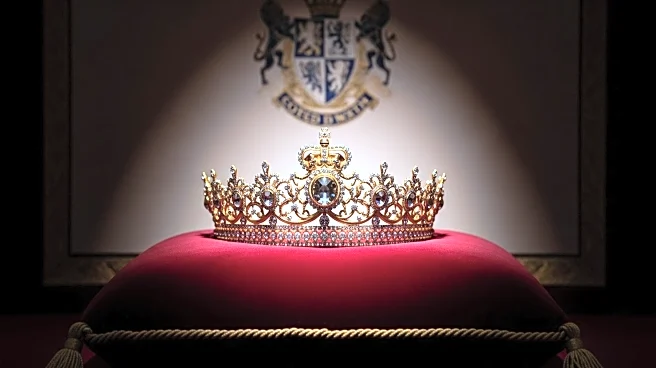What's Happening?
King Charles III is preparing to host President Trump for a historic second state visit to the United Kingdom. The visit is marked by elaborate preparations at Windsor Castle, including a grand banquet and ceremonial events designed to strengthen ties between the U.K. and the U.S. This diplomatic effort comes at a time when President Trump's America First policies have impacted traditional trade and security relationships. The U.K. aims to secure favorable trade terms and support in addressing Russian aggression in Ukraine. The state visit is seen as a strategic use of 'soft power' by the British monarchy to influence international relations.
Why It's Important?
The state visit underscores the significance of diplomatic relations between the U.K. and the U.S., particularly in the context of shifting global alliances and trade policies. By hosting President Trump, the U.K. seeks to leverage its historical and cultural ties to influence U.S. policy decisions that could benefit its economic and security interests. The visit highlights the role of ceremonial diplomacy in fostering international cooperation and addressing geopolitical challenges. It also reflects the ongoing importance of the monarchy in British foreign policy, despite its ceremonial status.
What's Next?
Following the state visit, discussions between U.K. and U.S. officials are expected to focus on trade agreements and collaborative efforts to address global security issues, including the situation in Ukraine. The visit may lead to further diplomatic engagements and negotiations aimed at strengthening bilateral relations. Observers will be watching for any policy shifts or announcements resulting from the visit, as well as reactions from other international stakeholders.
Beyond the Headlines
The use of 'soft power' through royal diplomacy raises questions about the effectiveness and ethical implications of leveraging cultural heritage for political gain. The visit may also influence public perceptions of the monarchy's role in modern governance and international relations. Additionally, the event could impact domestic political dynamics in both countries, as leaders navigate the complexities of global diplomacy.












